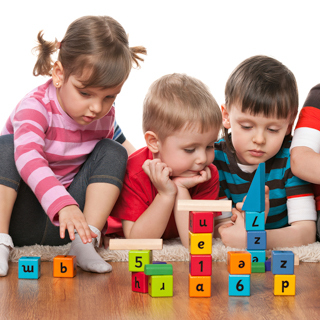Tips for Family Resiliency During the Pandemic

The Child Mind Institute aims to support the mental and emotional health of children. When a child struggles, the whole family is affected. They explore the concerns and challenges they heard about most from parents and provide expert guidance on how to respond in the most effective way. They also have resources to help parents get the best care for their children and the best outcome for their family.
Here are some tips to help you and your family thrive, despite the challenges of COVID-19.
Managing your stress
- Cut yourself some slack! Remind yourself that there’s no playbook for what we’re going through. Between work, childcare and everything else, you may be juggling impossible demands. Being kind to yourself helps you stay calm and frees up the bandwidth you need to take good care of yourself and your family.
- Be smart about what you’re reading and watching. Consider putting a limit on the amount of news about the coronavirus you consume each day. If your social feeds are making you anxious, take a break, and focus on accounts that are calming.
- Set achievable goals. Give up those unrealistic expectations for what you (and your kids) can achieve in this stressful time. Enjoy your successes each day, no matter how small.
- Practice mindfulness and self-care. Focusing on what you’re doing right now, without being caught up in the future or the past, is an important coping skill. Set aside a few minutes around the same time every day to do deep breathing, meditation, exercise — whatever works.
- Stay connected. Keep your support network strong, even when you’re only able to call or text friends and family. Socializing can help you feel better and stay grounded. And the same is true for your children — try setting them up with virtual playdates or plan phone calls with relatives.
- Accept your feelings. Many of us feel sad, angry and anxious right now. Acknowledging that — instead of fighting it — allows us to ride out our emotions, and it might even free us up to move on and say, “Okay, so now what needs to be done?"
Helping children cope
- Be a mindful family. Find a way to help everyone take a moment to slow down, stay present and come together, like family yoga or a quiet walk in the woods.
- Stick to routines. Consistency and structure are calming during times of stress. As much as possible, kids should get up, eat and go to bed at their normal times.
Helping parents through COVID-19 and beyond
- Make and post a schedule. Changing activities at set times each day lets kids know what’s coming. Work together as a family to set a realistic schedule, then print it out and go over it together each morning. Setting a timer can also be a helpful way to let kids know when activities are about to begin or end.
- Alternate work and play. Alternate chores or schoolwork with fun activities and free time. Kids learn more when schoolwork is divided into chunks geared to their attention span. And knowing they will soon be rewarded with something they enjoy helps them focus in the moment.
- Use positive attention! Attention is the best way to influence children’s behavior, and it helps to make that attention big, bold, specific and immediate. Instead of "Good job, try "GREAT JOB GETTING STARTED ON YOUR ASSIGNMENT SO QUICKLY!"
- Validate feelings. Kids, especially teens, will be disappointed about losing important experiences like sports, proms, plays and graduations. Let them share their feelings. Listen without judgment, and resist the urge to reassure them that everything will be fine.
